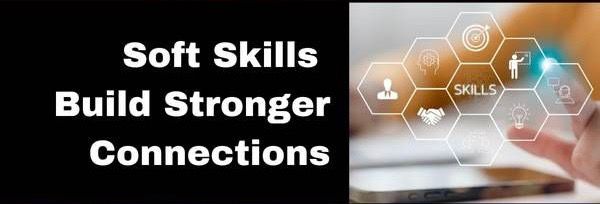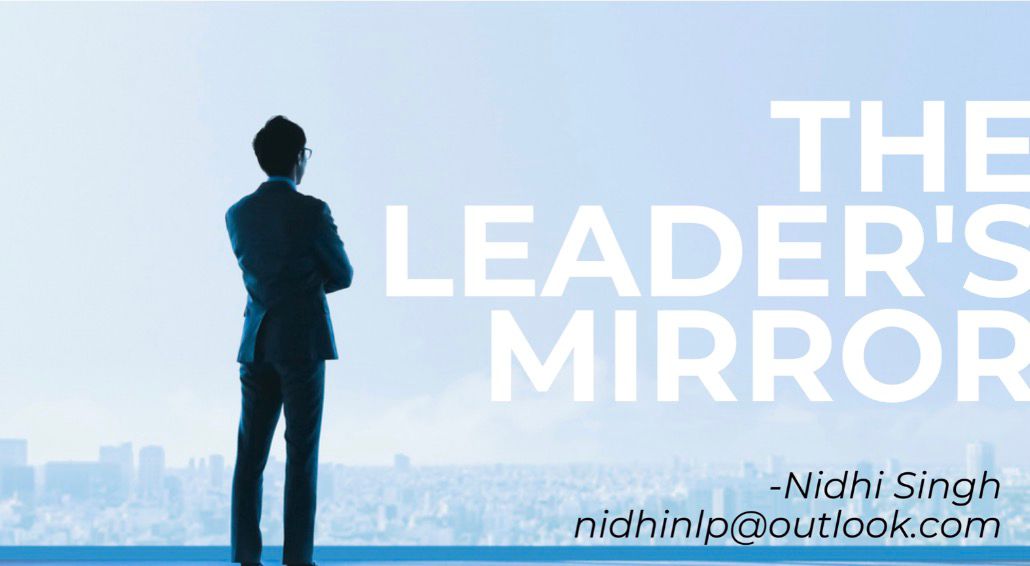A 2023 LinkedIn Workplace Learning Report revealed that 92% of talent professionals and hiring managers consider soft skills as important or more important than hard skills.
The rise of digital technology has transformed the work place drastically. With invent of AI (artificial intelligence) automation is the way of life now. There is minimal manual work, most accurate and fast working machines have been replaced. The digital technology has taken over human life at home and work. Even though technical knowledge and digital literacy remain crucial, there is still need for abilities that machines cannot do – “The soft skills”.
As corporates are fast adapting the AI driven changes, individuals need to gear up. Our DNA, still needs socialisation to be happy. This will need adaption of soft skills such as communication, emotional intelligence, problem-solving, adaptability, and collaboration. Along with technical re-skilling during AI era, upgrading the relevant soft skill has become equally important than ever.
Let us explore further:
Human Connection in a Digital World
One of the biggest limitations of AI is its inability to replicate human emotions, empathy, and interpersonal connections. While AI can analyse sentiments, generate responses, or even simulate conversations, it lacks genuine emotional understanding and to empathise.
While workplaces are relying on digital tools, human touch becomes even more valuable. For instance, a customer service chatbot can handle standard queries efficiently, but when a
frustrated or anxious customer needs reassurance, empathy, a human professional with strong interpersonal skills makes the real difference. Soft skills like active listening, compassion, and conflict resolution allow professionals to build meaningful relationships, enhance trust, and deliver experiences that technology alone cannot achieve.
Communication and collaboration in Global Teams
Globalisation has enabled collaborations, allowing people from different parts of the world to work together. Understanding cultural differences, diverse perspectives, and varying work styles need personal touch to maintain happy work environment.
Here, effective communication skills become critical. The ability to convey ideas clearly, listen actively, respect diverse viewpoints, and collaborate across cultures ensures smooth teamwork and higher productivity. Tools like AI-powered translators may break language barriers, but the nuances of tone, body language, and cultural sensitivity require human judgment and adaptability.
Moreover, as organisations adopt remote, hybrid or WFH models, clear virtual communication and collaboration skills will define professional success in the future.
In India, studies by NASSCOM and McKinsey show that while millions graduate every year, only a fraction are “industry-ready.” The employability gap isn’t due to lack of technical knowledge but a shortage of communication, teamwork, and adaptability.
Critical Thinking and Problem Solving
While AI excels at analysing data and identifying patterns, it lacks the ability to interpret abstract concepts, ethical dilemmas, or ambiguous situations the way humans can. Complex business challenges often require critical thinking, creativity, and ethical reasoning along with data to arrive at balanced solutions.
For example, AI can predict consumer trends, but deciding whether to prioritise profit over environmental sustainability or how to handle a public relations crisis demands human judgment and problem-solving skills. Professionals who can combine data-driven insights with human-centred thinking will be in high demand.
Adaptability and Lifelong learning
What is relevant today may become obsolete tomorrow with constant change in the AI era with new tools, evolving job roles, and emerging industries. What is relevant today may become obsolete tomorrow.
Adding to the complexity is today’s multi-generational workforce i.e., Baby Boomers, Gen X, Millennials, and Gen Z working side by side. Such dynamic environment needs adaptability, openness to learning, and a growth mindset. Employees willing to upskill/re-skill, embrace change, and experiment with innovative ideas will stay ahead of the curve instead of fear of replacement by machines.
Leadership in the AI era
Leadership in an AI-driven world goes beyond technical expertise. Modern leaders must inspire, motivate, and empower their teams while navigating uncertainty.
With the generational difference, a Leader needs to bridge the gap with efficient leadership and communication styles. While younger employees may prefer digital-first interactions and quick feedback, older colleagues may value stability and face-to-face conversations.
Skills such as emotional intelligence, empathy, and decision-making are crucial for creating inclusive workplaces where humans and technology complement each other rather than compete. AI can provide data-driven recommendations, but the final responsibility for ethical and strategic choices rests with us.
Final Word
As AI takes over routine and repetitive tasks, the human skills that machines cannot replicate will become the most valuable currency of the new era.
In the age of AI, hard skills may get you hired, but soft skills will determine your growth, leadership, and longevity.
Those who act now by strengthening “SOFT SKILLS” will not just survive in the AI era, but for sure FLOURISH.





Leave a Reply